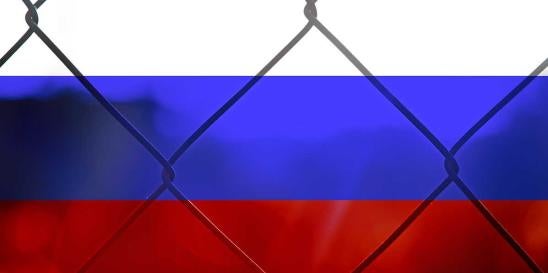| Go-To Guide: |
|
On February 23, 2024, the U.S. Department of the Treasury, U.S. Department of Commerce, and U.S. Department of State imposed historic sanctions on Russian entities and entities transacting with Russia. The announcement marked the two-year anniversary of Russia’s invasion of Ukraine and was made one week after the death of opposition leader Alexei Navalny in a Russian prison.
OFAC SDN List Additions
As part of the new Russian sanctions actions, the U.S. Department of the Treasury’s Office of Foreign Assets Control (OFAC) added almost 300 entities to its list of “Specially Designated Nationals” (the SDN List). U.S. persons are prohibited from engaging in virtually all dealings involving SDNs. To put greater pressure on Russia, OFAC designated targets including “a major cog in Russia’s financial infrastructure; more than two dozen third-country sanctions evaders in Europe, East Asia, Central Asia, and the Middle East; and hundreds of entities in Russia’s military-industrial base and other key sectors.” Persons and entities added to the SDN list include, among others, National Payment Card System Joint Stock Company (NSPK), the state-owned entity that operates Russia’s National Payment System; and Joint Stock Company Sovcomflot, Russia’s state-owned shipping company and fleet operator, as well as 14 vessels owned by Sovcomflot. In announcing the new additions, OFAC noted the sanctions were aimed at preventing Russia’s military industrial base from acquiring necessary resources and imposing severe consequences on entities that had made such resources available.
BIS Entity List Additions
As part of the new sanctions rollout, the U.S. Department of Commerce’s Bureau of Industry and Security (BIS) added an additional 93 entities to its Entity List because of their activities in support of Russia’s defense-industrial sector and war effort. The Entity List sets forth foreign persons subject to specific license requirements for the export, reexport, and/or transfer of specified commodities. U.S. and non-U.S. parties alike are prohibited from exporting, reexporting, or transferring most commodities (including hardware, software, and technology) subject to U.S. export controls jurisdiction to parties on the Entity List without prior authorization from BIS.
Sixty-three of the entities are based in Russia, eight in China, sixteen in Turkey, four in the United Arab Emirates, two in the Kyrgyz Republic, and one each in India and South Korea. More than 50 of the entities added to the list will also receive a “footnote 3” designation as Russian-Belarusian military end-users. This means in addition to more traditional Entity List restrictions, those entities are subject to the “military end-user rule,” which establishes export controls over certain foreign-produced items made with U.S.-origin software or technology and destined for such “military end-user” entities. All the newly added entities will require a license to transact with all items subject to the Export Administration Regulations (EAR) and will have a license review policy of denial, apart from food and medicine designated as EAR99, which will be reviewed on a case-by-case basis.
Added High-Priority Items
In addition to naming new entities on the entity List, BIS worked with the European Union, Japan, and the United Kingdom to identify “common high priority items” that Russia seeks to procure for its weapons programs. This list is published with the goal of informing businesses that Russia is seeking to procure restricted goods, such as those on this list, via non-sanctioning countries and to encourage businesses to exercise due diligence to ensure Russia is not the end destination for these products. BIS and its international partners thus increased the common high-priority items on the list from 45 to 50 to highlight for industries that certain machine tools pose a heightened risk of being diverted illegally to Russia because of their importance to Russia’s war efforts.
New Russian General Licenses
To accommodate the transition to new sanctions, OFAC also published four new general licenses that create limited exceptions to the new sanctions.
General Licenses 88 and 89 authorize the wind-down of transactions involving entities and financial institutions blocked as part of the February 2023 sanctions package. General License 90 authorizes certain transactions necessary to divest or transfer the debt or equity of an entity blocked as part of the new sanctions. Finally, General License 91 authorizes certain safety and environmental transactions involving persons or vessels blocked as part of the new sanctions, including the safe docking and anchoring of any now-blocked vessels. These licenses are all temporary; General Licenses 88, 89, and 90 are in effect through 12:01 a.m. EDT April 8, 2024, while General License 91 expires at 12:01 a.m. EDT May 23, 2024.
Published Government Advisory
As part of the United States’ recent actions towards Russia, the U.S. government released an official business advisory, titled “Risks and Considerations for Doing Business in the Russian Federation and Russia-Occupied Territories of Ukraine.” This advisory is a joint product of the Departments of Commerce, Treasury, and State and provides information for businesses regarding the risks of Russia’s conduct in Ukraine. The advisory summarizes the state of the market and related concerns, and provides information on the following topics:
- U.S. sanctions and export controls;
- U.S. import prohibitions;
- Anti-money laundering and corruption;
- Russia’s conduct in Ukraine, as well as domestically, such as forced labor, including child labor; discrimination based on sexual orientation and gender identity; restrictions on freedom of expression; and state surveillance; and
- Resources for human rights due diligence and compliance with sanctions and export controls.
Key Takeaways
As the Russia/Ukraine conflict continues, the new U.S. sanctions measures represent an effort to encourage further global pressure on Russia, impact the Russian economy, and demonstrate the U.S. government’s commitment to ending the conflict.
These new measures add to the already complex Russia sanctions landscape, so any company that engages in Russia-related transactions should revisit these dealings to confirm whether they remain permissible. In addition, these designations on non-Russian entities indicate the risks of conducting business in Russia for both U.S. and non-U.S. persons. Thus, companies conducting international business should continue to screen all non-U.S. counterparties and international customers against all applicable U.S. and non-U.S. sanctions lists, regardless of whether they are located in high-risk jurisdictions.






 i
i


